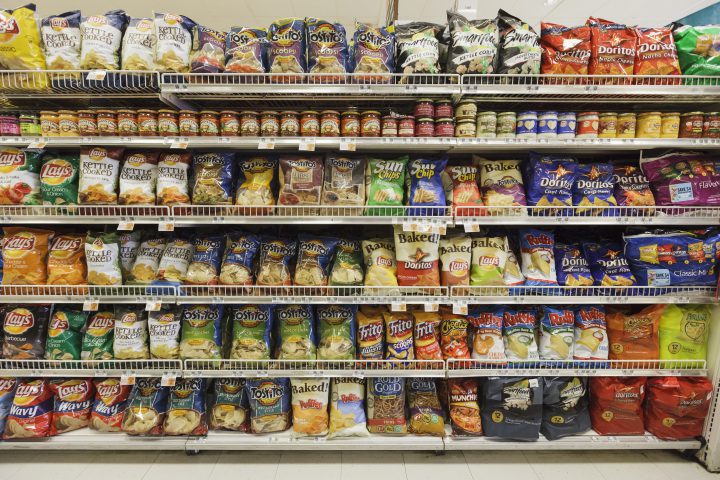Health Canada released the results of a years-long campaign on Monday, which pushed for less sodium in processed foods.

After sampling about 10,500 products from across 94 processed food categories, the health agency found that most of the voluntary sodium reduction targets it set in 2012 were ignored by the industry.
READ MORE: Can’t have sugar or salt? Use these 9 health alternative flavourings instead
The report highlights that 48 per cent of food categories made zero progress in lowering salt levels, while most other categories made only some progress. About 14 per cent met all the targets set by Health Canada.
Some foods that met reduction targets include: cottage cheese, kippered fish, preserved meats, tofu and tempeh, and tomato paste.
WATCH: Packaged foods with the highest and lowest sodium levels

Examples of products that made no progress include: canned tuna, pie dough and shells, packaged deli meats, frozen foods such as pizza and sandwiches, and pickled vegetables.
Overall, Health Canada’s report says the effort by food companies is not enough.
“The reduction of sodium in processed foods was much lower than anticipated,” the report reads. It adds that 77 per cent of sodium intake for Canadians comes from processed foods.
WATCH: That’s the cost of groceries for an average Canadian family

Are voluntary targets effective?
Anar Allidina, a registered dietitian based in Toronto, told Global News that food companies need more of a push than voluntary targets when it comes to sodium.
READ MORE: Are low-salt diets bad for your heart? This Canadian study is stirring up controversy
The Health Canada report does indicate it is now planning a regulatory approach, which means products with high sodium include a label on the packaging.
In addition, the agency has proposed to put limits on the marketing of “unhealthy food,” such as high sodium products, to children under 13 years of age.
Risks of too much sodium
But Allidina points out that sodium is an important mineral for the body. The health agency recommends Canadians consume about 1,500 milligrams each day — but most exceed that amount.
About 80 per cent of Canadians consume more than 2,300 milligrams of sodium each day. Young children and teenage boys typically consume even more than that.
WATCH: Where’s the evidence linking junk food ads to obesity?

The intake of sodium can have adverse health effects, such as high blood pressure, heart disease and kidney problems. Health Canada points out that about 25 per cent of Canadians above 20 years of age already have high blood pressure.
Processed foods themselves also tend to have more calories and fat, which can lead to another range of health problems, Allidina points out.
How to curb sodium intake
While Health Canada works on lowering the amount of sodium present in processed foods, Allidina says Canadians can start making changes in their diets themselves.
WATCH: Healthy food cheaper than junk food, new study says

The dietitian advises against eating too much processed food, and eating out less often. While cooking, she says salt can be replaced with lemon or vinegar.
Some processed foods that Allidina says are red flags for sodium include chips, pretzels, soy sauce, microwave dinners and deli meats.
READ MORE: Packaged foods with the highest and lowest sodium levels
While grocery shopping, Canadians should also carefully read labels. Allidina says a good rule of thumb is looking at the daily value per serving on packages. Anything below five per cent is ideal, while anything above 20 per cent is considered high.






Comments